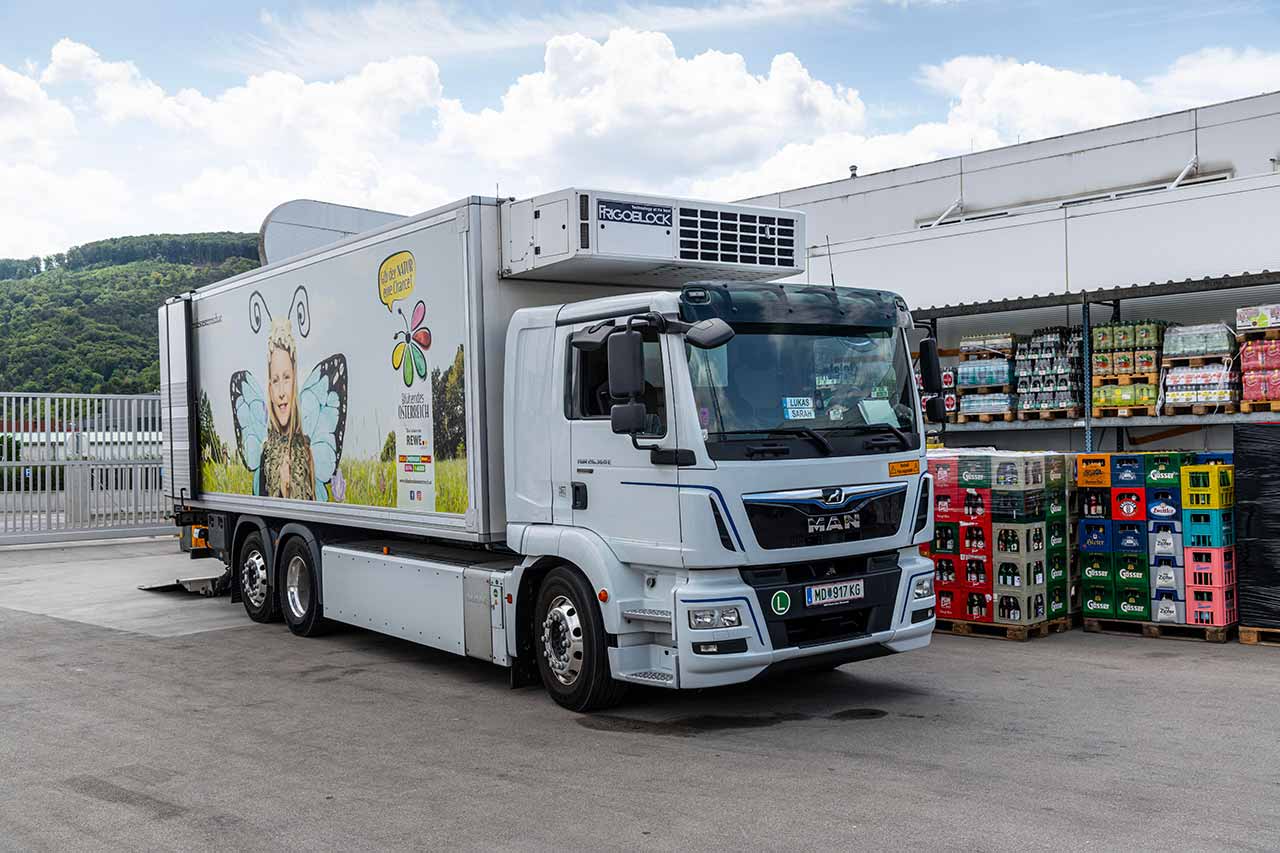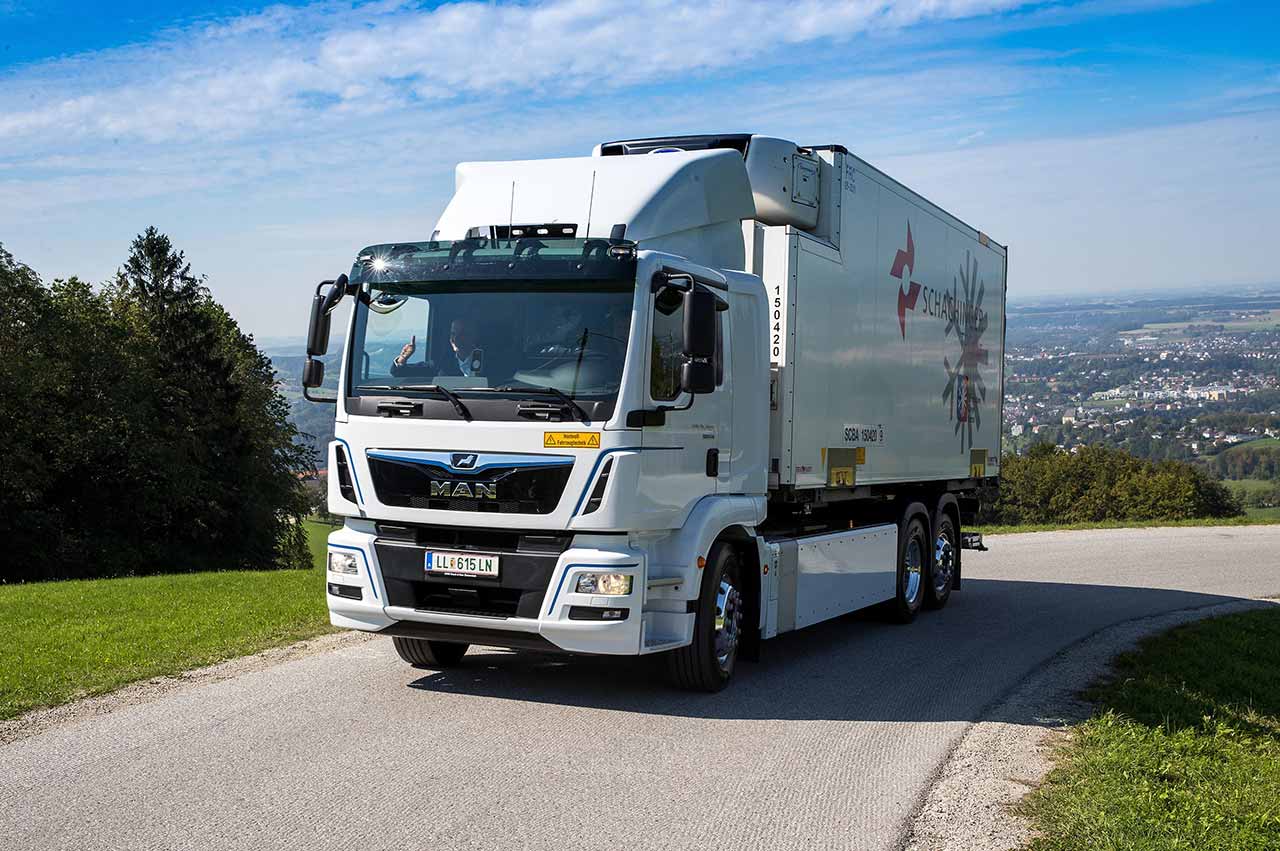The “ZeroEmissionDeliveries – Berlin“ feasibility study now launched by the European environmental association Transport & Environment will be used by the REWE Group as a real-life example to examine the conditions under which it is possible to switch to electric commercial vehicles in regional delivery traffic. MAN Truck & Bus is contributing its expertise as a vehicle manufacturer to the study. Results are expected in the fall of this year.
MAN Truck & Bus views very great potential for climate protection in the electrification of urban and regional freight and passenger transport. The use of purely electrically powered commercial vehicles can reduce the carbon footprint in the transportation sector. But converting the vehicle fleets to electric propulsion is complex and requires new charging infrastructure as well as adaptation of power grids and ways of working. MAN has been supporting its customers in the switch to electromobility since 2018 with the MAN Transport Solutions team of experts.
But there are also new opportunities for customers, for example through deliveries during off-peak hours in city centers with electric trucks that generate significantly less noise. MAN has already been involved here in the EIT Urban Mobility project ZEUS (see “MAN electrifies city logistics”).
 MAN eTGM — Source: MT&B
MAN eTGM — Source: MT&B
In the launched feasibility study “ZeroEmissionDeliveries – Berlin” with Transport & Environment, the possibility of electrification will be investigated using a very concrete example. The core of the project is formed by T&E, REWE Group, MAN Truck & Bus and Fraunhofer Institute for Systems and Innovation Research (ISI), which will conduct the study. Other project partners are Stromnetz Berlin, Allego and Compleo. «The joint project is an important step towards the practical implementation of e-trucks in delivery traffic. After many “roadmaps”, it is now time to provide more clarity for companies. With the support of Fraunhofer ISI, we are investigating what is already possible today and what steps are needed on the part of policymakers, infrastructure operators and automakers to drive forward the electrification of truck fleets in large cities», explains Ekaterina Boening, Senior Policy Manager at T&E Germany.
Starting point of the analysis are the logistics centers Oranienburg and Alt-Mariendorf of the REWE Group. The feasibility will be examined using the practical example of regional delivery logistics in Berlin and the surrounding area. The delivery routes for over 250 REWE stores in this region will be analyzed. «When delivering to our supermarkets in Berlin and the surrounding area, one gear meshes with the other. Reliable driving of our truck fleet is the be-all and end-all here. So far, we have been able to achieve significant savings in fuel consumption through better driving behavior and optimized route plans. We are very interested in innovative, resource-saving solutions and are therefore pleased to be involved in the project», says Torsten Prag, Logistics Manager REWE Ost.
 MAN eTGM — Source: MT&B
MAN eTGM — Source: MT&B
In detail, the study will clarify, among other things:
- Which vehicles are required?
- What is the optimal route plan for e-trucks?
- How can a mix of private and public charging infrastructure be designed?
- What are the resulting requirements for the power distribution grid and power generation?
Through the valuable experience that MAN has already gained with the eTGM electric distribution truck in the CNL project in Austria since 2018, the T&E study can be supported in the best possible way by data collected in real-world operation. On the MAN Truck & Bus side, Michael Treier, Sales Truck Market Preparation eMobility, will accompany the study. «T&E’s feasibility study on zero-emission delivery traffic will provide valuable results for all parties involved due to the integration of real customer requirements of the REWE Group. In particular for our future eTruck portfolio, I can derive from it with our sales team which eTruck specifications will be required and which charging infrastructure will have to be built in the urban environment in the next few years», Michael Treier summarizes his expectations for the study results.